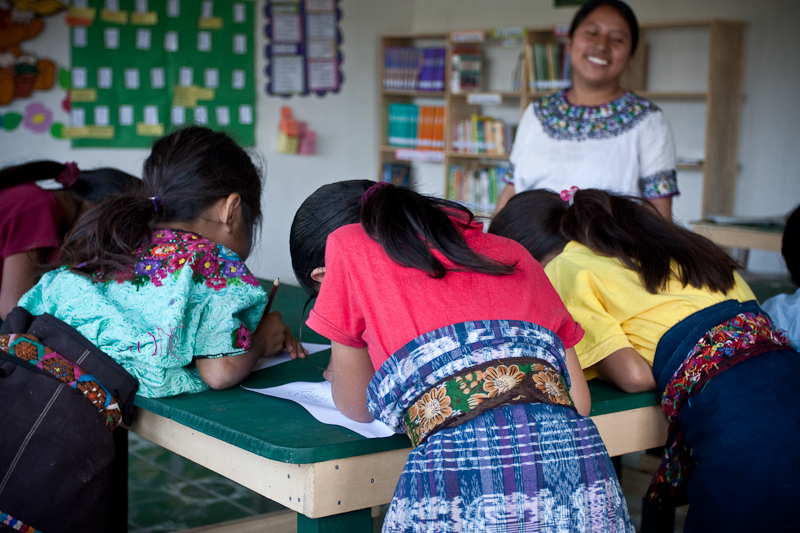
Three years ago when Child Aid helped librarian Alberta Guarchaj launch a school-break reading program in her village library, fewer than 10 children showed up. Working closely with Child Aid literacy staff, Ms. Guarchaj tailored the program so that it better fit the needs of her village. She thought about ways to attract more children and learned new reading activities to engage the kids.
The following year, 30 children turned out for the program, and Ms. Guarchaj continued to promote it in her community. Because books were rare in Pasaq, even in the village school, parents began to take an interest in the program. Most adults in the village are unable to read and know from experience that literacy has real economic benefits.
Throughout Guatemala, impoverished parents, especially women, express sadness about their inability to contribute more to their families economically. For most of them, the obstacle is the same: they cannot read. Parents in Pasaq have come to see Adventures in Reading as an alternative, as a way to improve the chances that their children will learn to read and increase the odds that they will do well in school.
In 2011, Ms. Guarchaj conducted Adventures in Reading again. But this year, 70 to 100 children crammed into the library each day to listen to the stories she read. They pulled books off the shelves to read themselves, and they participated with intense excitement in the literacy activities that form the heart of the program.
At one of our recent Librarian Training Workshops, Ms. Guarchaj told librarians from other villages about her successes with Adventures in Reading. She described children beginning to read on their own and kids checking out books to bring home to their families. She talked about improvements children were making in their writing skills, and about parents attending reading sessions with their kids. And she talked about how the program, combined with Child Aid’s other work in the village, is creating opportunities for her community that never before existed.
For Child Aid, the success of Adventures in Reading in Pasaq is another indicator of the success of our program. Literacy doesn’t happen overnight. It takes long-term commitment and requires flexible programs that communities can adopt and make their own. This year, a total of 21 villages conducted Adventures in Reading, engaging thousands of children in reading activities during the three-month school break.